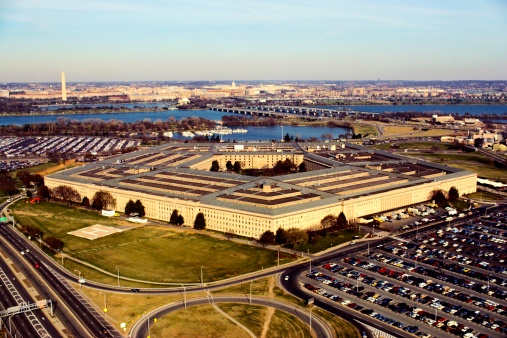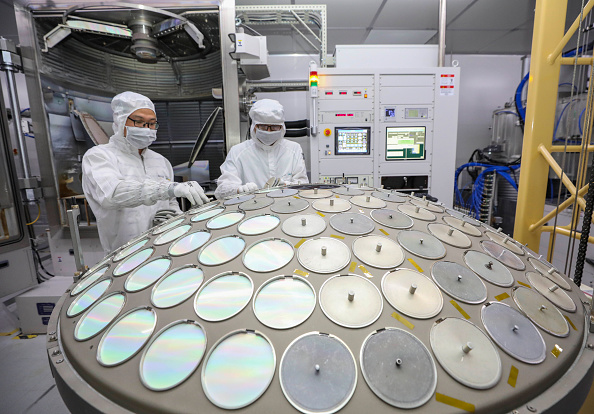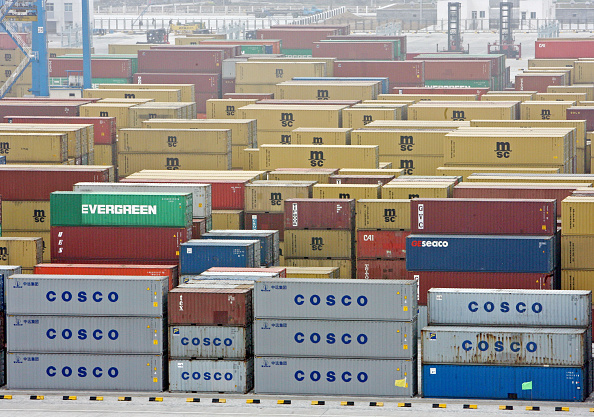
 The Pacing Challenge
The Pacing ChallengeThe U.S. has released the unclassified version of its latest National Defense Strategy, labeling China as America's largest military competitor, while maintaining that Russia is an "acute" threat. The strategy serves as a guiding document for how the U.S. military and Defense Department at large will respond to growing threats around the globe, and it identifies four "top-level defense priorities," designed to head off external threats.
"The [People's Republic of China] is the only competitor out there with both the intent to reshape the international order and increasingly the power to do so," Defense Secretary Lloyd Austin said Thursday.
According to strategic Pentagon documents, China remains the "pacing challenge" — or the nation that threatens to surpass the U.S. It describes China's intention to expand its nuclear arsenal to about 1,000 strategic weapons in coming years. "The current and growing salience of nuclear weapons in the strategies and forces of our competitors heightens the risks," it says.
To prevent an arms race, the National Defense Strategy emphasizes diplomacy as an approach to convince China to come to the negotiating table on arms control.
Meanwhile, China has criticized the strategy, saying that it "hyped up the so-called China challenge and power competition," a Defense Ministry spokesman said.
"The China-related content of the report has continued its wrong 'threat-driven theory' and smeared China's normal military development by planning US defense strategy," said Senor Colonel Tan Kefei, spokesman for the Ministry of National Defense, in a statement.
Read more in "The Biden Administration's National Security Strategy viz China: Continuity with Change," by David Shambaugh, a Gaston Sigur Professor of Asian Studies and the Director of the China Policy Program at George Washington University.
 Easing the Chips
Easing the ChipsThe United States government's latest restrictions against China's semiconductor industry are unlikely to impact as many U.S. workers in China as first anticipated, easing the pressure on semiconductor companies doing business in China.
The U.S. sanctions announced last month were introduced to keep cutting-edge chip technologies out of reach for China's military but have created uncertainty around its tech industry, negatively impacted global chip stocks, and driven Chinese Americans to leave the industry or give up their citizenship if they want to remain.
The U.S. Bureau of Commerce has since clarified that the U.S. is not preventing its citizens from working across the entirety of China's semiconductor industry. but that the restrictions do apply to Americans who authorize or conduct the shipment of equipment used to make advanced semiconductors for chip manufacturing plants.
Meanwhile, Chinese industry insiders are claiming that China's huge domestic market will offer a buffer and a safe haven for the domestic semiconductor industry, blaming the U.S. for adopting "a Cold War mentality" to contain China's advancement, and noting that the semiconductor sector will likely receive increased government support.
 Striking Deals
Striking DealsIn a controversial move, Germany has struck a deal with Beijing to allow Cosco, a Chinese shipping group, to buy a stake in a terminal at Hamburg port, despite strong government opposition. Chancellor Olaf Scholz saw the deal safely through the German cabinet, insisting on a compromise: that Cosco would have to accept a 25 percent stake rather than the 35 percent initially proposed.
Scholz is also set to hold talks in Beijing with Xi Jinping today, becoming the first G7 leader to do so since the beginning of the pandemic.
The deal comes as Germany is trying to wean itself off Russian energy imports, but in turn, is seen as increasingly dependent on China. Even with the decreased percentage of stake, the transaction "disproportionately increases China's strategic influence over German and European transport infrastructure and Germany's dependence on China," said State secretary Susanne Baumann.
Analysts have noted that the compromise is also disappointing those who had hoped Scholz would adopt a new approach to Beijing and "break definitively with the mercantilism of the Angela Merkel era."
The United States has also warned European nations to not let China take control of companies in strategic sectors, and specifically cautioned Germany against letting China take stake in the Hamburg port terminal. But Beijing responded to Washington's warnings, with its foreign ministry stating that the U.S. has "no right" to interfere in Chinese cooperation with Germany.
Read more in "China Reselling Europe Russian LNG," by Leonardo Dinic, an Advisor to the CroAsia Institute.
Prepared by China-US Focus editorial teams in Hong Kong and New York, this weekly newsletter offers you snap shots of latest trends and developments emerging from China every week, while adding a dose of historical perspective.
- 2022-10-28 Third Time’s the Charm
- 2022-10-21 United as Steel
- 2022-10-14 Party Time
- 2022-10-07 Elections Incoming
- 2022-09-30 Hot Intrigue
- 2022-09-23 Global Gridlock
- 2022-09-16 Injecting Stability
- 2022-09-09 Cutting Edges
- 2022-09-01 A Win for Global Business
- 2022-08-26 A Heavy Price
- 2022-08-19 Risky Business
- 2022-08-12 Backtracking
- 2022-08-05 Cross-Strait Outrage
- 2022-07-29 Playing with Fire
- 2022-07-22 Nixonian Flexibility
- 2022-07-15 List Diplomacy
- 2022-07-08 Easing Tariffs, Not Tensions
- 2022-07-01 Getting Tough
- 2022-06-24 Tools in the Box
- 2022-06-17 Unprecedented Oversight
